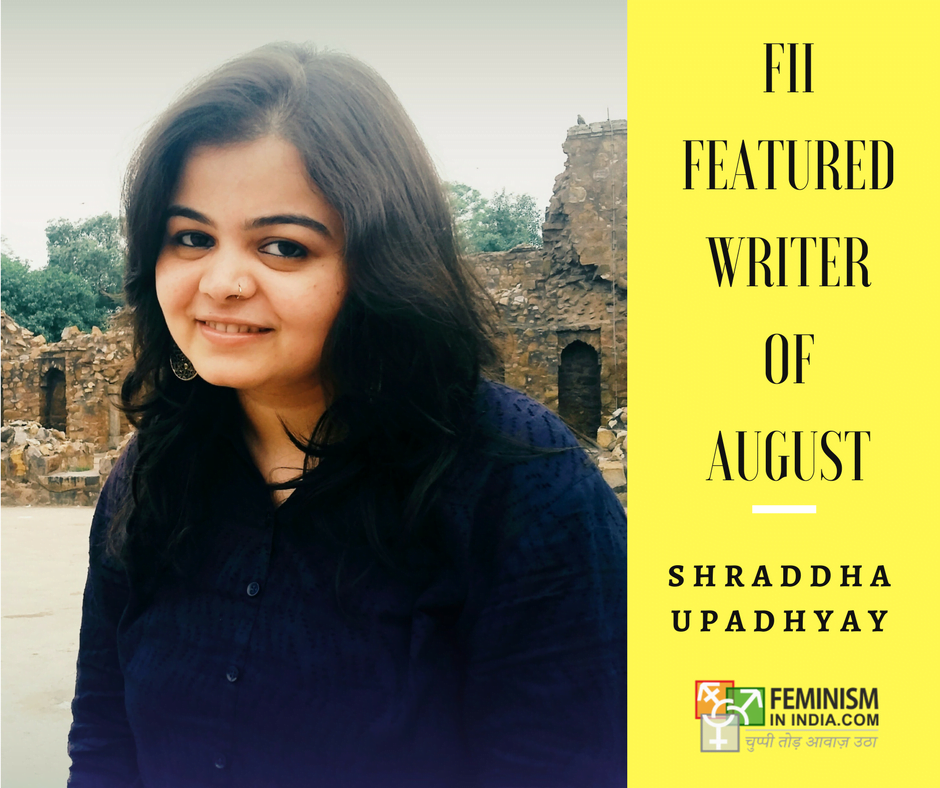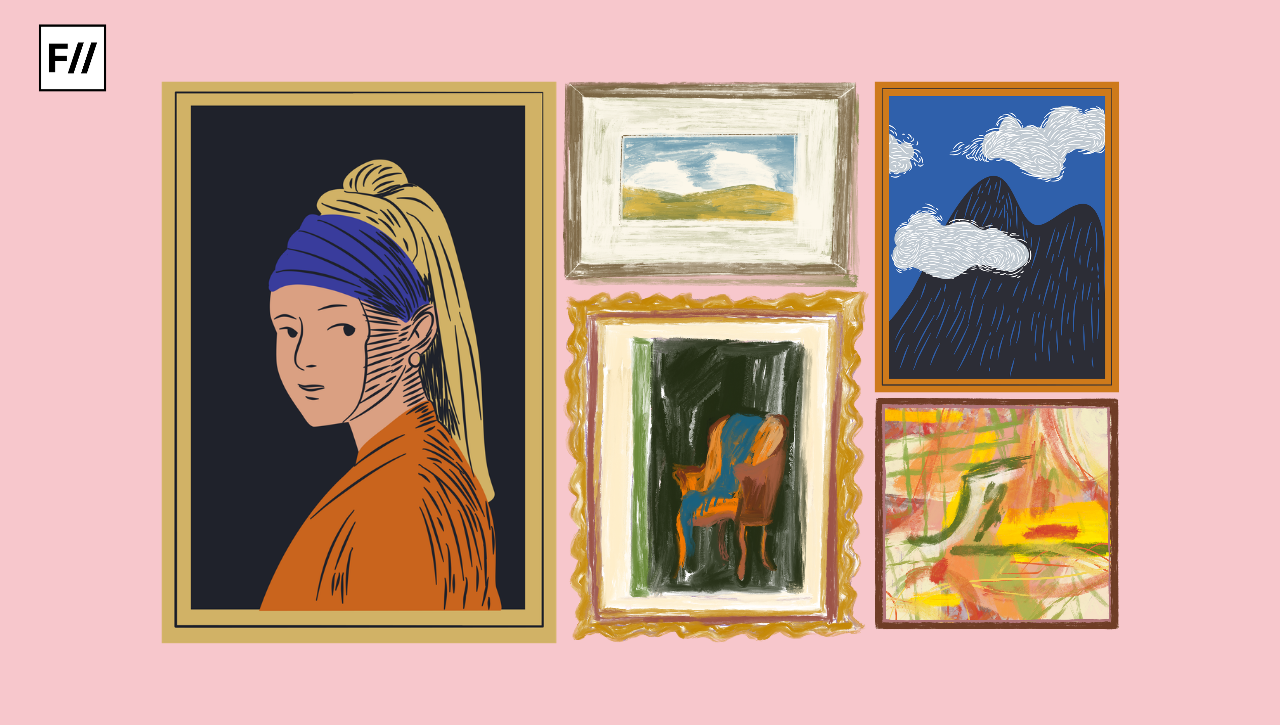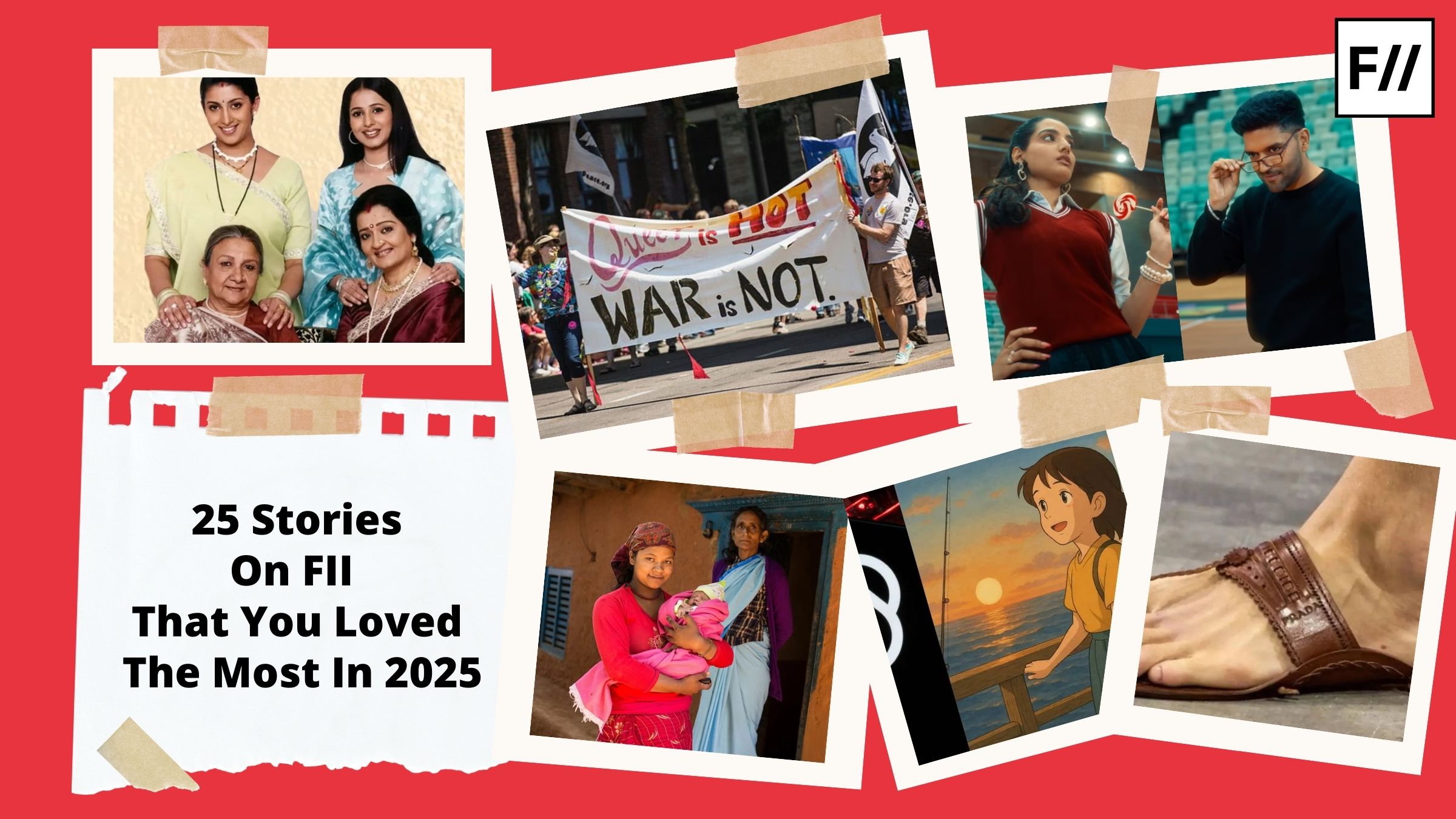This year, we have been featuring the best writers from our writer community for their committed contribution to FII, making it what it is today. FII would not exist if not for the passionate and loyal feminist writer community that we have steadily been building over the last three years. This month, we feature Shraddha Upadhyay.
Shraddha, a 4th year law student, started writing for us relatively recently – in April – and has contributed a steady stream of articles ever since. She is our only bilingual writer, and has written articles in both Hindi and English. She has written on a variety of news articles, like a reminder of the sexual harassment charges that the much-eulogized “Supercop” KPS Gill had, as well as conceptual articles on the societal treatment of ageing women and the systematic preference for sons.
So without further ado, let’s meet the writer herself!
FII: Tell us a little about yourself and what you do.
SU: Academically, I’m pursuing my graduation in law. I’m constantly out of place wherever I’m placed. Mostly distracted by the political and social issues of the times, I’m eternally enraged. When exhausted by my own rants, I take refuge in music and poetry which thus inspires me to write.
FII: How did you become a part of the FII writer family?
SU: Feminism in India has been on the list of my go-to websites for a very long time. And then one day, I was scrolling through my documents where I saw this piece I had written sometime back which I immediately decided to send. The response was prompt and positive. I sent another article and was asked if I wanted to write regularly. Of course I agreed. And now I always have five unfinished articles in my documents that I am writing for Feminism in India.
FII: How and when did you become a feminist? Which issues within feminism are close to your heart?
SU: I grew up in an atmosphere where I was the most empowered so I didn’t entirely identify with women at home. I thought I had a different destiny. However, otherwise I had a fair idea of societal misogyny. I had seen it all – dowry, violence, rape, harassment. I questioned everything since forever; however I manifestly adopted the terminology of feminism only in college when I also accepted my femininity. I’m continually fascinated about the idea of ‘good woman’ that patriarchy has pigeonholed us into. I’m also intrigued by the institutionalized misogyny and operation of laws.
FII: What is your favourite piece on this site that you have written, and your favourite piece on this site that you have read? Why did they strike you?
SU: Amongst the little work I have done here, I believe my first piece which is called “Sanskari Ladkiyon Ke Naam Khula Khat” is my best work. However I would like to believe that my best is yet to come. I was most impressed by Swati’s article called “Main Aur Ladkiyon Ki Tarah Nahi Hoon Waala Samaveshi Stree Dosh”. It actually made me look at myself in the mirror. Then there is the entire work on mental health and menstrual awareness which cannot be hierarchically arranged.
FII: What do you like to do when not writing about gender and social justice?
SU: I get back to my world of stories then. When I occasionally come out, I weave another world where I read obsessively with Begum Akhtar and Ghulam Ali taking turns in the background with a fine cup of chai. In some of these nights, I produce poetry. On others, I read poetry. Also in the time I carve out for academic ventures, I research on random unrelated topics. That is where I get most of my information from. However sometimes I do visit the black and white world of laws and judgments.
FII: What do you like about FII and our work? What more would you like to see from us?
SU: It is so heartening to have an enabling platform like Feminism in India to voice our concerns. The work that is being done to resurrect the forgotten or conveniently invisible women characters from different disciplines is commendable. I would like to see (and write) more pieces on women in music and culture and commentaries on research articles.
FII thanks Shraddha for lending her enthusiasm and insight to our magazine and infusing it with her sharp, incisive commentary.You can follow her on Twitter, Instagram and Facebook. To become a part of our writer community, click here.
About the author(s)
Feminism In India is an award-winning digital intersectional feminist media organisation to learn, educate and develop a feminist sensibility and unravel the F-word among the youth in India.




